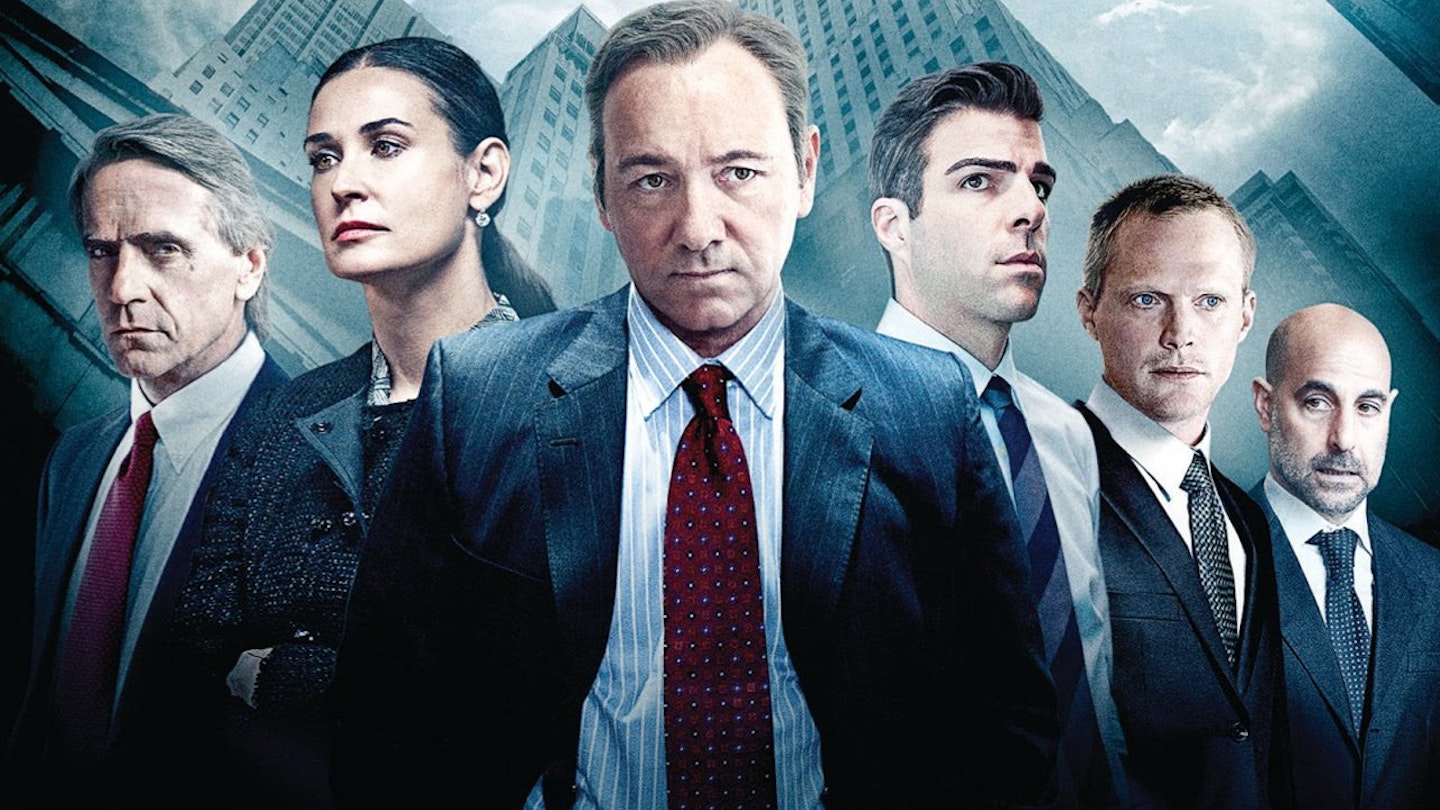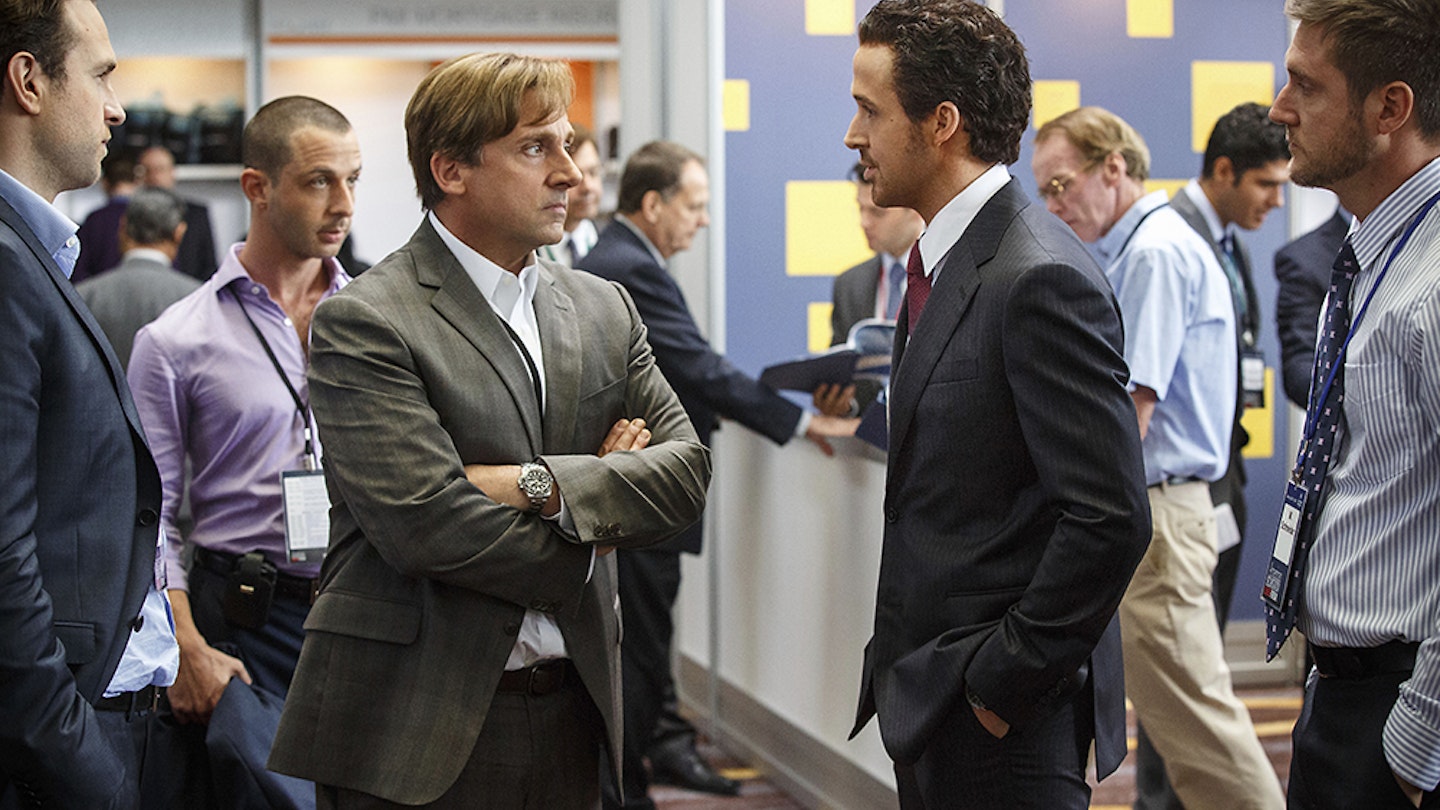At one point during the long night of the soul that makes up Margin Call, Jeremy Irons’ Tuld, the vampiric head of a tottering investment bank, observes, “There are three ways to make a living in this business: be first, be smarter or cheat.” A prescient mantra for the current business age, the purity of the sentiment encapsulates the scalpel-like precision that J. C. Chador’s debut picks over the carcass of modern greed. Part thriller, part horror, part workplace tragi-comedy, all cautionary tale, this is a sharp film about sharp men (and Demi Moore) in sharp suits that makes Wall Street: 2 look like amped-up panto.
With its study of bruising machismo in tight spaces revealed through vital verbiage, Margin Call owes more than a debt to David Mamet in general and Glengarry Glen Ross in particular. But Chandor’s dialogue has none of Mamet’s grandstanding. Instead, the talk is terse, but the coolness with which they discuss nuclear options — dump all their mortgage bundles before the market realises they’re worthless but risk ruining their credibility forever — rings frighteningly true.
Chandor’s screenplay charts Sullivan’s seismic findings up the company ladder, each embodied by a terrific performance; from cynical foot soldier (Paul Bettany) to head trader (Kevin Spacey) to potential fall gal (Demi Moore) to Irons’ CEO. This superb ensemble only get quietly fractious meetings and harried phone calls to establish character, but everyone registers. It is Zachary Quinto (adding another great logician to his CV) and Stanley Tucci who propel the first half, and Spacey and the charming-but-scary Irons who dominate the second. Spacey, in particular, is great, adding a gentility to his normal acid-smart persona — his grieving for his dying dog may be an obvious metaphor, but Spacey makes it affecting.
There is a nice running gag that the higher up the chain of command we go, the weaker their command of financial mumbo-jumbo is. As much as it is about finance, it is also great on office politicking, from the agonies of mass redundancies to the etiquette of corporate hierarchies. It doesn’t shy from exposing avarice and moral myopia but this neither condemns nor glorifies the barbarians. Instead it humanises them, to such an extent it might turn your hatred of the one per cent into pity.



